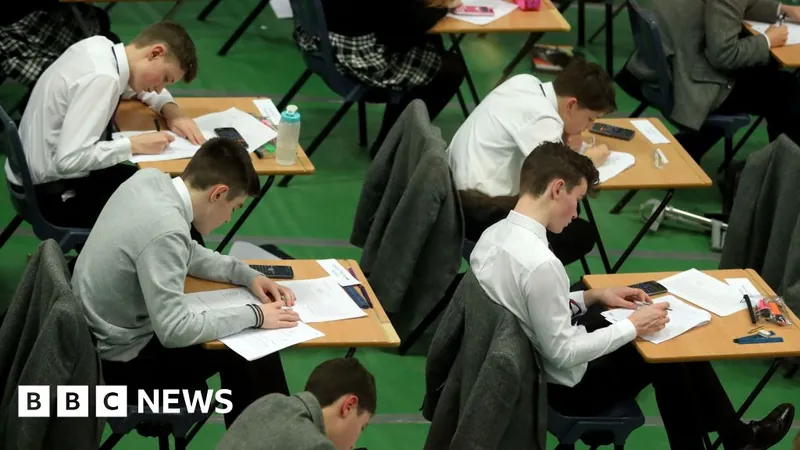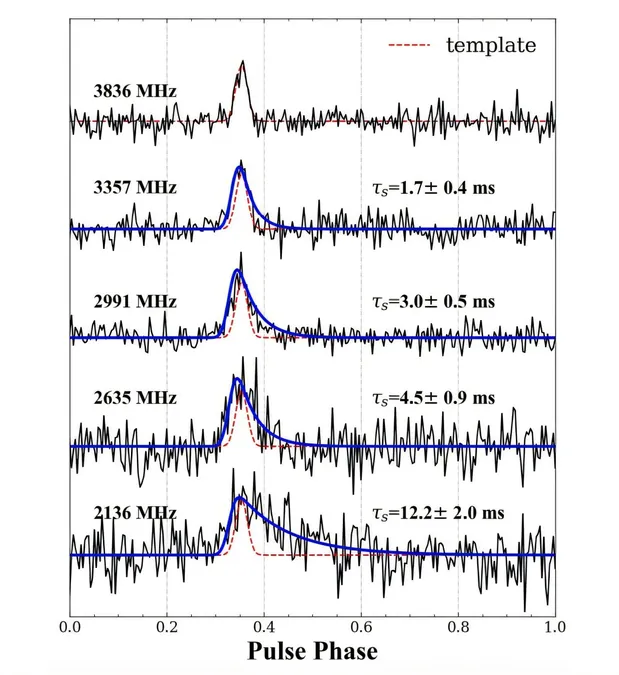
Shockingly Low Pass Rates in Maths and Science Raise Alarm in Scotland!
2024-12-27
Author: Benjamin
Shockingly Low Pass Rates in Maths and Science Raise Alarm in Scotland!
In a stunning revelation that could have serious implications for Scotland's educational landscape, a recent report from the Commission on School Reform has highlighted a troubling trend: only a mere 40.1% of Scottish pupils have managed to pass their National 5 mathematics exams in 2024.
This dismal figure starkly contrasts with the 75.2% of students who passed English, raising critical concerns about the state of Science, Technology, Engineering, and Mathematics (STEM) subjects in the region.
The report draws upon exam pass rates for secondary school pupils between the ages of 14 and 16, analyzing data that stretches as far back as 2015. The findings reveal that pass rates for other popular subjects are just as concerning, with only 25.9% of students passing biology, 22.5% in chemistry, 17.9% in physics, and a mere 9.8% in computing science.
Carole Ford, a former headteacher at Kilmarnock Academy and member of the Commission, expressed grave concerns regarding the data, stating, “There’s a mountain to climb.” The recent international PISA survey results have corroborated these findings, indicating that Scottish students' achievements in maths and science have lagged behind global standards.
Key factors contributing to this alarming decline include staffing shortages, a fundamental shift in the curriculum towards pupil choice, and a growing trend where students are opting for subjects they perceive as easier. Ford pointed out, “We have to ask ourselves, why do fewer pupils now expect to succeed in maths and STEM subjects?” This question reflects a deeper societal issue where the importance of a solid foundation in sciences and mathematics may not be adequately prioritized.
Adding to the urgency of the situation, Lord Jack McConnell, chair of Reform Scotland and former first minister, highlighted the critical nature of improving pass rates. With Scotland's economic future increasingly tied to industries such as renewable energy and health sciences, he stated, "The deficit in our STEM pass rates revealed by this research is not good enough."
In response, a spokesperson for the Scottish government emphasized that the decision on when to take National qualifications depends on individual students, parents, and schools. However, they acknowledged the importance of allowing students to enter at levels where they have the best chance for success, suggesting that flexibility in the education system remains a priority.
The report raises serious questions about whether young people should have opportunities to achieve more than six qualifications during S4, and if certain subjects should once again be made compulsory, as was the case decades ago.
As Scotland faces these educational challenges, the implications stretch far beyond the classroom. If significant changes are not made to bolster STEM education, Scotland risks falling behind in a rapidly evolving global economy. The time for dialogue and action is now—Scotland's future may depend on it!









 Brasil (PT)
Brasil (PT)
 Canada (EN)
Canada (EN)
 Chile (ES)
Chile (ES)
 España (ES)
España (ES)
 France (FR)
France (FR)
 Hong Kong (EN)
Hong Kong (EN)
 Italia (IT)
Italia (IT)
 日本 (JA)
日本 (JA)
 Magyarország (HU)
Magyarország (HU)
 Norge (NO)
Norge (NO)
 Polska (PL)
Polska (PL)
 Schweiz (DE)
Schweiz (DE)
 Singapore (EN)
Singapore (EN)
 Sverige (SV)
Sverige (SV)
 Suomi (FI)
Suomi (FI)
 Türkiye (TR)
Türkiye (TR)